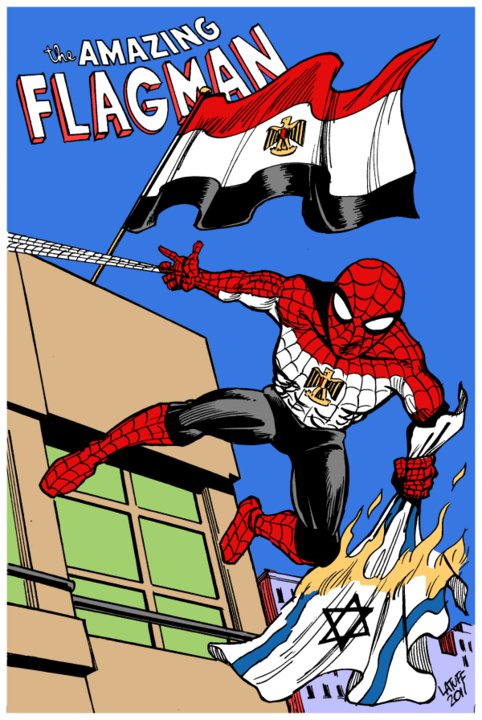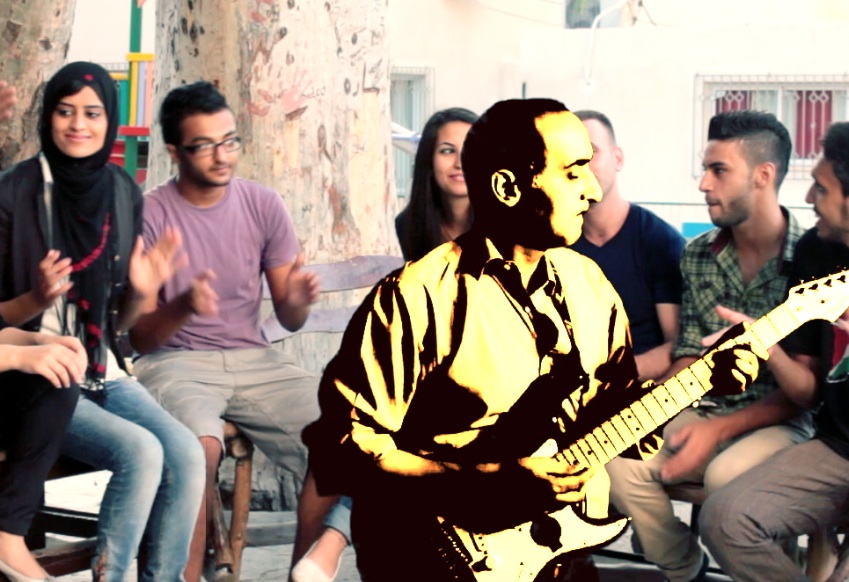Palestine and why music matters
 I have been promoting the Palestinian cause through my music since the last of months of the year 2000, with the project that I call the ‘Musical Intifada’. Throughout these years this campaign has seen ups and downs, but overall there has been a steady increase in followers and supporters. There can only be one reason why I have kept this up for so many years, despite my busy daily work, and the reason is that I believe that music matters.
I have been promoting the Palestinian cause through my music since the last of months of the year 2000, with the project that I call the ‘Musical Intifada’. Throughout these years this campaign has seen ups and downs, but overall there has been a steady increase in followers and supporters. There can only be one reason why I have kept this up for so many years, despite my busy daily work, and the reason is that I believe that music matters.
Every now and then, I encounter people among the public who criticize this approach. A common phrase heard from them is “do you really think that a bunch of songs can free Palestine? Get real!”
It may be time to answer this understandable question in public. Perhaps it will save me a little bit of trouble in having to explain my view to each and every critic. So, here we go.
First of all, the answer to the question is: no. I most certainly do not believe that a bunch of songs can free our occupied and ravaged homeland. But at the same time, that’s not where this ends. There definitely is more to it. I will try to explain.
Every struggle has several dimensions. The most obvious ones are the military dimension, the economic one, and the political one. This last one is strongly connected to human ideas and emotions. These, after all, provide a human’s motivation for their political thought and conviction, and they are influenced by people’s knowledge, perceptions, and experiences.
It is in this realm that music can play a role. Music is a very multi-dimensional and potentially powerful form of human expression, since it has the ability to address a person on both the emotional and the rational level. The legendary American songwriter and E.Y. Harburg once said: “Words make you think a thought. Music makes you feel a feeling. A song makes you feel a thought.” Think about it, and you will see that this keen observation makes perfect sense.
My music consists of songs with lyrics, for this exact reason. They tell a story, and they tell it in a way that bypasses the standard cognitive channels that are utilized when people familiarize themselves with the narrative of a people struggling for the liberation of their homeland. My large collection of songs is mostly in English, this being the most international language in our present time, and thereby has the potential to be heard and understood by a large percentage of the world’s population. By now, over the years, almost every essential aspect of our struggle is dealt with in one of my songs, as you will see if you browse through them.
How many times do you read an article? I am sure you will agree that you will normally read it only once, or perhaps twice, at least until you have understood its content. How many times do you watch or listen to a certain speech or a lecture? I’m sure you understand what I am getting at: if you like a song, you will listen to it over and over again. You may also have noticed that it leaves you with a certain feeling, an effect that coincides with the understanding of the meanings of its lyrics. You may even find yourself humming its chorus to yourself while driving your car, doing the dishes, or even while focusing on a creative activity such as drawing, or building something.
If this chorus contains words that you believe in, will the song not inspire you to hold on to these beliefs, and have faith in them? And what if your original stance on the subject is neutral, but you like the tune and find yourself humming these words, will it not eventually open your mind to at least becoming curious about its message?
I believe I have made my point, without needing to expand further on the subject from here, so let us get back to the three main dimensions of the struggle that I mentioned before. If we agree that music, together with other expressions of culture and thought, can play a role in expressing the narrative, does that not make it a useful tool in the struggle?
If you believe that debate matters, that articles matter, that speeches and lectures matter, and that education matters, it would not make a lot of sense to maintain that songs of struggle are irrelevant. You may simply be underestimating the powerful effect of music on the human mind. If you still have doubts, then we have a very recent example that illustrates how music can have effects that were not even mentioned yet in the above. In our Arab world, torn apart by sectarian struggle, has there been any recent unifying effect of the magnitude that we saw in the popular support for Arab Idol winner Mohammed Assaf, who was embraced by Arabs from all across the MENA region?
Music will not free Palestine, of course. A comprehensive struggle that works on all levels, is what will lead to the liberation of our homeland. My convictions tell me that excluding any of these components weakens our position; to me, this is simply a matter of common sense. It is from these convictions that I derive the inspiration and determination that is needed in order to continue with the Musical Intifada. It may not be a huge contribution, but it is the sum of all our individual contributions to the struggle that throws our collective weight into the equation.
 I’m not the only one who is active in this field, as you probably know. Since you have almost finished reading this article, I hope you have understood it as an endorsement not only for my music, but for all fellow musicians from around the world who dedicate their music to the Palestinian cause. Together, we are the worldwide Musical Intifada, an ever-growing army of unarmed combatants whose power is embedded in our words, our rhythms, and our melodies.
I’m not the only one who is active in this field, as you probably know. Since you have almost finished reading this article, I hope you have understood it as an endorsement not only for my music, but for all fellow musicians from around the world who dedicate their music to the Palestinian cause. Together, we are the worldwide Musical Intifada, an ever-growing army of unarmed combatants whose power is embedded in our words, our rhythms, and our melodies.
I thank all of you who have been helpful in making my music play its modest role, and hope that you will continue to support me in my efforts. We must believe, we must keep our determination, and we must hold on to what is rightfully ours. The struggle continues, until justice is served, until the occupier is defeated, and our people return to Palestine.
Doc Jazz




Recent Comments